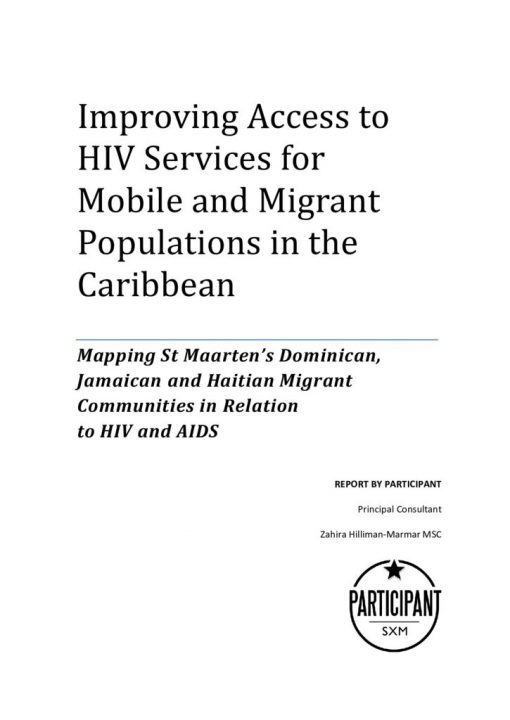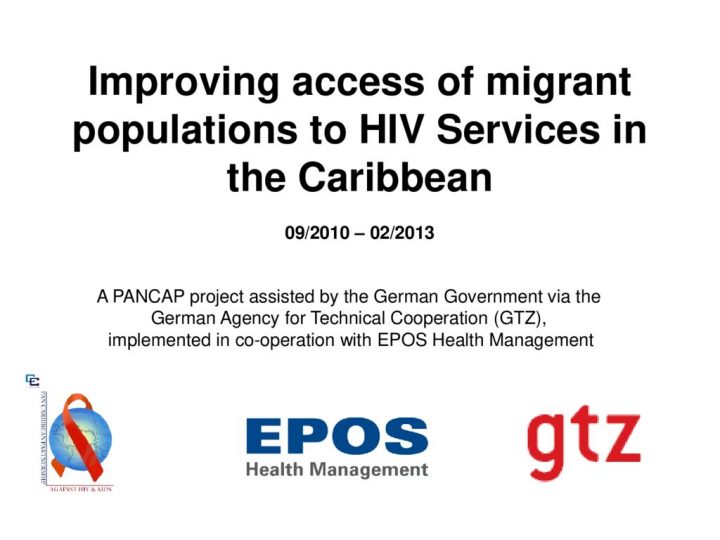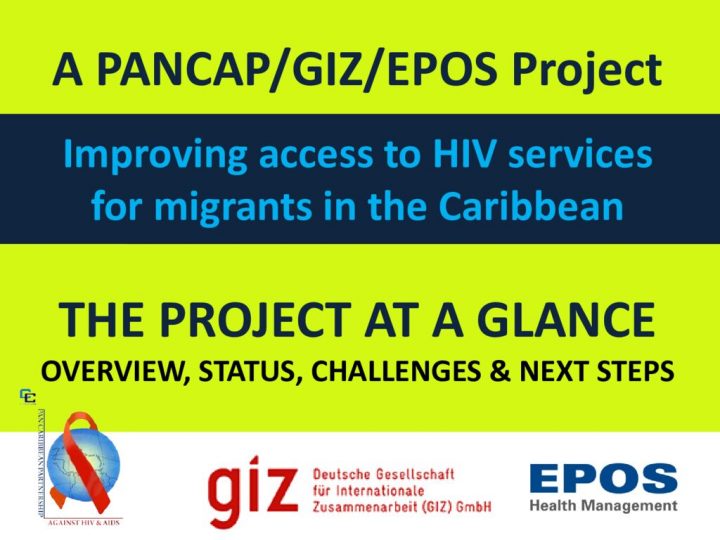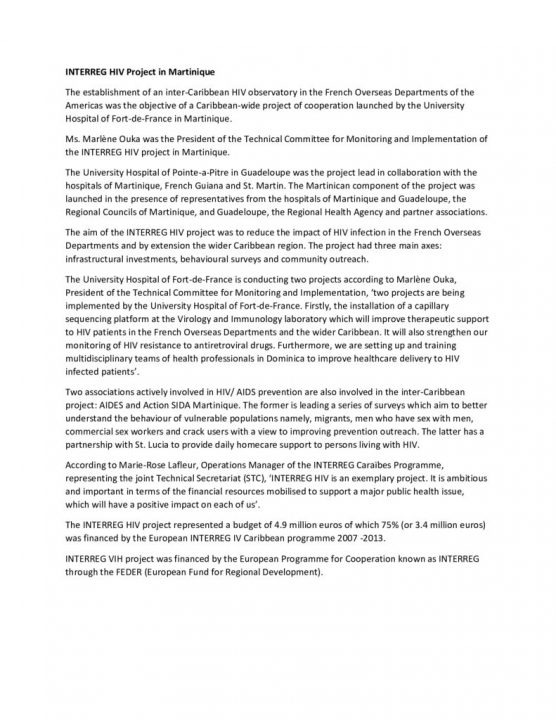Improving access to HIV Services for Mobile and Migrant Populations in the Caribbean
pancap@caricom.org
Description
This four component PANCAP/GIZ/EPOS project was implemented in five countries, within a period of 30 months in 3 phases:
- Inception (5 months)
- Analytical (10 months) and
- Implementation (15 months).
EPOS Health Management was contracted by GIZ to work in partnership with PANCAP and key regional stakeholders from selected countries and regional organizations, to achieve the following objectives:
- Enhance the policy and legal framework constituting the access rights of mobile and migrant populations concerning HIV and AIDS services at national level.
- Identify and pilot effective financing mechanisms/models to secure the access of mobile and migrant populations to HIV services in selected countries.
- Identify and strengthen organizations with the potential to represent the interests of mobile and migrant populations regionally and within the selected countries.
- Enhance the number of public, private and non-governmental entities offering HIV services tailored to the specific needs of mobile and migrant populations.
Objective of the Project
The overall objectives of this project were achieved with collaborative multi-sectoral, multi-dimensional and multi-stakeholders approaches. There was also a need for a close cooperation of stakeholders at national and regional level, for the implementation of all four components.
This page provides a summary of how the piloted countries were selected to participate in the pilot phase. It presents the objectives, deliverables and indicators for the implementation of the project.
The specific expected deliverables and outcomes for each component were:
- Legislations and regulations frameworks were developed at country level
- Pilot financing mechanisms were implemented
- Empowerment of organizations supporting migrants in the field of HIV
- Develop best practices regarding HIV-services for mobile and migrant population
Project Components
The project aimed to support an enabling environment for migrants in the Caribbean with regard to their access to HIV and AIDS prevention, treatment and care. The activities of the project were built around four components:
- Component 1: Development of gender specific regional policy guidelines on access of migrants to HIV services and their pilot implementation in at least 3 selected countries.
- Component 2: Development of financing mechanisms/models to secure the access of migrants to HIV services and their pilot implementation in at least 3 selected countries
- Component 3: Identification and strengthening of groups representing the interest of the migrant population (gender sensitive) and their participation in relevant national and regional HIV-policy planning bodies, and
- Component 4: Setting-up sub-regional alliances for the improvement of HIV gender and age specific service delivery to the migrant population, and promotion of best practice
Main achievements included:
Inception Workshop in Trinidad and Tobago reached the following results:
- Invited countries and organisations and shared information on the project
- Participants provided recommendations for each component
- Each project indicator per component was revised
- Definitions on mobile and migrant populations were specified
- Five countries were selected: Antigua, Saint Maarten, Trinidad & Tobago, Guyana and Suriname
- Situation analysis were conducted by consultants: reports are available for component 1, 2, 3 & 4
- The governance structures of the project were established
- A Focal point and a Technical Working Group were developed in each country
The RAG was constituted and meetings were held for each component in order to advise the project decision makers. The group consisted of 12 key stakeholders from Bahamas, Dominican Republic, Jamaica, IOM, UNAIDS, ILO, UWI/HEU, CVC, COIN, PHCO, PCU Policy diision. The RAG is subdivided into four component subgroups of three members each.
Regional Expert Group (REG) developed and provided support to the project. The project was presented at the 2011 HIV Conference in Bahamas, PANCAP AGM, and COHSOD. Short-term consultancies were hired and will conduct exploratory or needs assessment studies.
Phase two of the project consisted of the following steps:
- Development of Regional and/or national policies and Legal Framework
- Development of Health financing instruments
- Development of tools for specific communication to migrants on HIV and for training organizations supporting migrants
- Adaptation of selected services to migrant needs.




